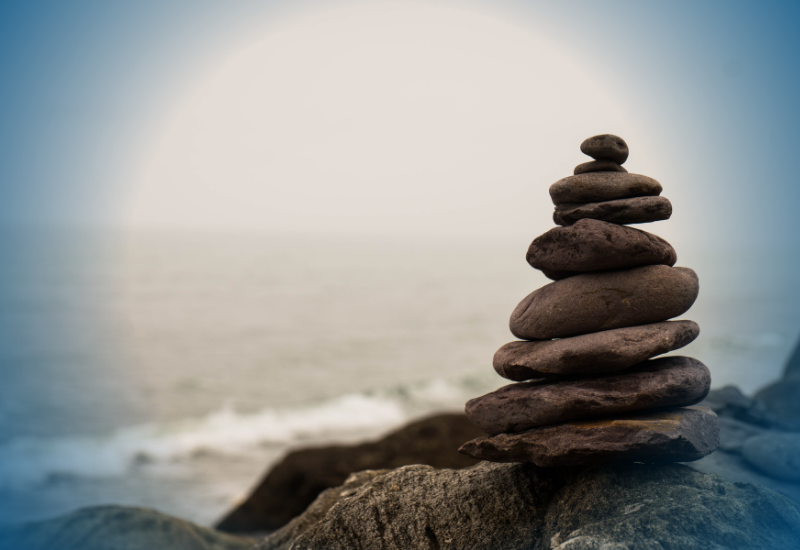Stability Driven Employees – Are They Undervalued?
- November 26, 2024
- Posted by: Harry Catrakilis
- Category: Blog

Understanding the Value of Stability Driven Employees Within an Organization
Harry Catrakilis reflects on a recent question in regard to the mindset of stability driven employees as opposed to those who are entrepreneurial go-getters. He highlights the broader cultural and generational dynamics within the workplace and the important role reliable employees play in a team.
“Recently, I came across a perspective that gave me pause. It was from an employee who questioned whether individuals with a stability-oriented mindset (versus go-getter entrepreneurial types who aim for leadership positions) are truly valued in the workplace. They expressed concern about whether organizations, including CKH Group, sufficiently recognize the contributions of those who are reliable, consistent, and deeply committed to their roles, but aren’t necessarily aiming for executive level positions. Those that ‘do it for the pay’ but do it consistently well.
This question was heartfelt and genuine, and it prompted me to reflect deeply on how I respond to employees who play such an essential role in any organization. These are the individuals who ensure that things are done well—reliably and consistently.
It’s a question worth exploring, as it touches on the broader cultural and generational dynamics of the workplace, the perception of these types of stability driven employees, and the critical value these individuals bring to a team. Let’s break this down into the three thoughts that initially crossed my mind as I considered the employee’s concern:
- Is it a generational divide?
- Is it a cop-out?
- These employees are vital to a well-balanced and functional team.
Is it a Generational Divide?
The world has changed dramatically over the years, and with it, the way newer generations approach work. I grew up in an environment shaped by parents who had lived through war, poverty, and scarcity. For them, work wasn’t just a job—it was survival. Opportunities for education were rare, and putting food on the table often took precedence over long-term career aspirations.
Today, many in the workforce have grown up with more access, privilege, and choice. The necessity to “hustle” out of survival has diminished for some, replaced by a focus on quality of life and work-life balance. To illustrate, I think of my parents’ village. In their time, leasing farmland was a coveted opportunity—a means to support a family. Today, that same land often sits unused because younger generations are no longer interested in sharecropping. The world has shifted.
This generational divide explains why so much of my generation values ambition and advancement, while younger employees just joining the workforce seek to stay in their comfort zone and excel horizontally rather than vertically. The job isn’t so much about carving the steps up anymore; we’ve paved the path. For them, it’s about making the trip up easier and more efficient. Recognizing this helps us understand why stability-focused employees might feel undervalued in workplaces that increasingly champion innovation, ambition, and disruption.
Is It a Cop-Out?
I’ll admit, my upbringing has made me naturally skeptical. I’ve often wondered whether some stability-oriented mindsets stem from an unwillingness to push harder. Is aiming for stability a cop-out to ‘laziness’?
My impression comes from this example: CKH has a model where we open Centers of Excellence in underprivileged areas. These centers provide job opportunities to individuals who might not otherwise have them. Despite offering what we believe is the best job in the area, the influx of applicants hasn’t been as significant as we expected.
When I’ve asked why, one explanation was raised:
Some individuals have expressed a preference for less demanding jobs, or even working seasonal jobs supplemented by unemployment benefits in the off season. Either way, this approach provides a comparable income to an entry-level position but without the added pressures or demands of a full-time role.
This response highlights my concern that this attitude is a cop-out for immediate comfort over long-term growth. While this approach may work for some, it lacks the trajectory that comes with these upward growth and skill-building roles. However, it’s important to distinguish this mindset from the many employees who genuinely value stability as a path to mastery and excellence. People who seek to become specialists in their field or seek to become CEOs both have the ambition, with different mindsets.
Stability-Oriented Employees Are Vital
The examples above represent outliers. In truth, stability-oriented employees are indispensable to any successful organization. These are the people who learn their craft, master it, and deliver consistently. They are the ones who make leaders and teams look good, ensuring everything runs smoothly.
When employees like this feel overlooked or undervalued, it’s a failure of leadership. A strong leader knows that success is a team effort and recognizes the crucial role of every member—especially those who are ‘the marathon runners’ who consistently perform well time and time again.
A general cannot run an army without sergeants. Similarly, no company can thrive without those who prioritize precision, reliability, and consistency. It is the leader’s responsibility to ensure these employees feel valued, respected, and appropriately rewarded.
To Stability-Minded Employees:
Find a leader who understands your value—one who rewards the team before rewarding themselves. In any good company, there will always be “sergeants,” and their contributions should never go unnoticed.
To Leaders:
Never underestimate the importance of those who make things happen and do it well. Stability-focused employees are not second-class citizens; they are the foundation of a functional and thriving organization.
If these individuals ever feel forgotten or undervalued, it’s a failure that leaders must address. Recognizing their contributions is not just good practice—it’s the key to building a successful and sustainable team.
To all the individuals who prioritize excellence, consistency, and reliability: thank you. You are indispensable to the success of any organization.” -Harry Catrakilis
The above article only intends to provide general information and reflection. It is not designed to provide specific advice or recommendations for any individual. It does not give personalized tax, financial, or other business and professional advice. Before taking any form of action, you should consult a financial professional who understands your particular situation. CKH Group will not be held liable for any harm/errors/claims arising from the blog. Whilst every effort has been taken to ensure the accuracy of the contents, we will not be held accountable for any changes that are beyond our control.
About the Author
Harry Catrakilis has over 30 years of experience in the practice of public accounting, corporate financial management, and investment banking. He was managing partner of CKH from 2003 until summer of 2018 when main operations were passed on to CEO Nico Meyer. This blog was written by and is the candid reflections of Harry Catrakilis.

